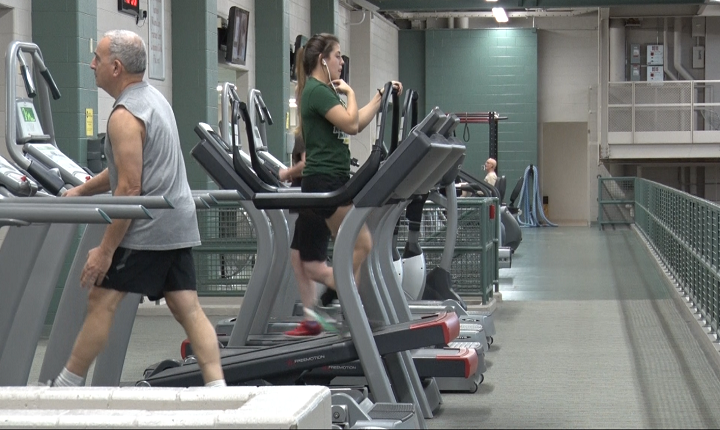Exercise may be the new regimen for cancer survivors

MARQUETTE — Exercise is good for your health, but more than you may think. The correct exercise regimen could help in the fight against cancer.
A group of researchers at NMU are looking into the effects of exercise and nutrition on oncology. Specifically, what effect does the food and exercise people take have on their fight with cancer or even those family members involved in the fight?
“With the cancer diagnosis in general it’s sort of a life–stopper itself and what we hope to work on and focus on is the physical and the psychological,” said Scott Drum, Associate Professor of Exercise Physiology at NMU.
The focus of the research is on non–traditional exercise, such as being outdoors, and due to the psychological and physical effects that occur in the time after diagnosis.
“If we can get individuals to do some sort of exercise usually we’ll start with traditional forms and hope to get them psychologically outside into some different and maybe even slightly uncomfortable types of situations. Totally still all by choice, and that can positively affect their psychology,” Drum commented.
The exercise and nutrition is supposed to distract from the diagnosis and allow focus on overall health, which hypothetically helps the person better fight the disease.
“What we hope to focus on is the [simplicity] of getting back into a daily life where health and physical activity and psychology are in the forefront of their mind,” shared Drum.
It is important for them to look at nutrition as the body is a collection of systems that all rely on nutrients in food for proper function.
“In general, nutrition plays a huge role in the development of any type of disease. If you think about the body’s cells, I mean, every cell is made up of what you eat. There is some truth to the saying, ‘you are what you eat,’ and so if we have a life full of food choices that maybe don’t have the adequate components that our cells need then maybe our cells are more susceptible to getting disease,” said Lanae Joubert, Assistant Professor of Nutrition at NMU.
Their hypothesis is much like a never ending cycle. The motivation to start working out contributes to better physical being which in turn leads to better psychological being and overall better health, improving the fight against cancer.
“One of the things that is super important is the psycho–biology of what’s going on because there is this mind–body connection and it definitely plays a major role in what’s going to happen to survivors progress,” shared Elizabeth Wuorinen, Associate Dean in the School of Health and Human Performance at NMU.
“That and also nutrition wise, if we bring that in, they’re more focused on their well–being then the diagnosis originally, and so in the long–term that dovetails into them staying healthier,” added Drum.
The participants in their study will range from 18-years-old and older. The types of cancer and the regimens will be individual as the focus is on getting back to daily life, a healthier one.
